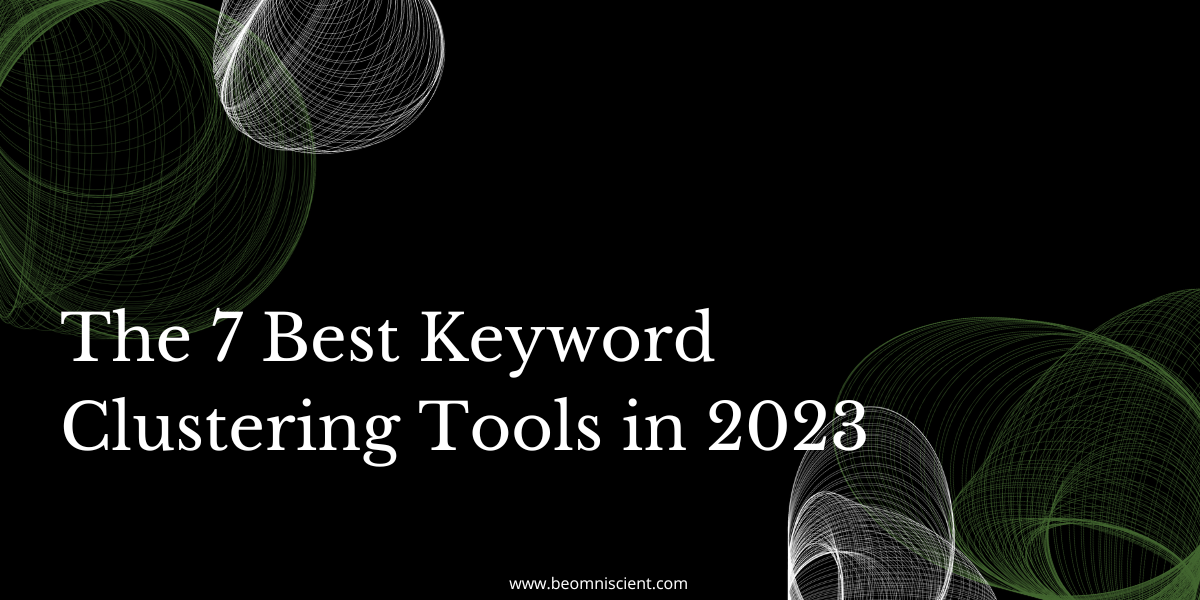
If you’re in the business of keyword research, then you know that keyword clustering is an essential part of the process.
But what are the best tools to use for keyword clustering?
In this blog post, we’ll take a look at seven of the best options currently available.
What is Keyword Clustering?
Keyword clustering is a process of grouping keywords based on their similarities, such as topic or intent.
By clustering your keywords into related groups, you can better understand the various topics and ideas that people are searching for online.
This understanding will help you to create more targeted content and improve the visibility of your website in search engine results pages (SERPs).
The idea is based on clustering algorithms in machine learning, which seek to group together related entities based on dimensional similarities. This is how Netflix recommends you movies just for based on your past viewing behavior.
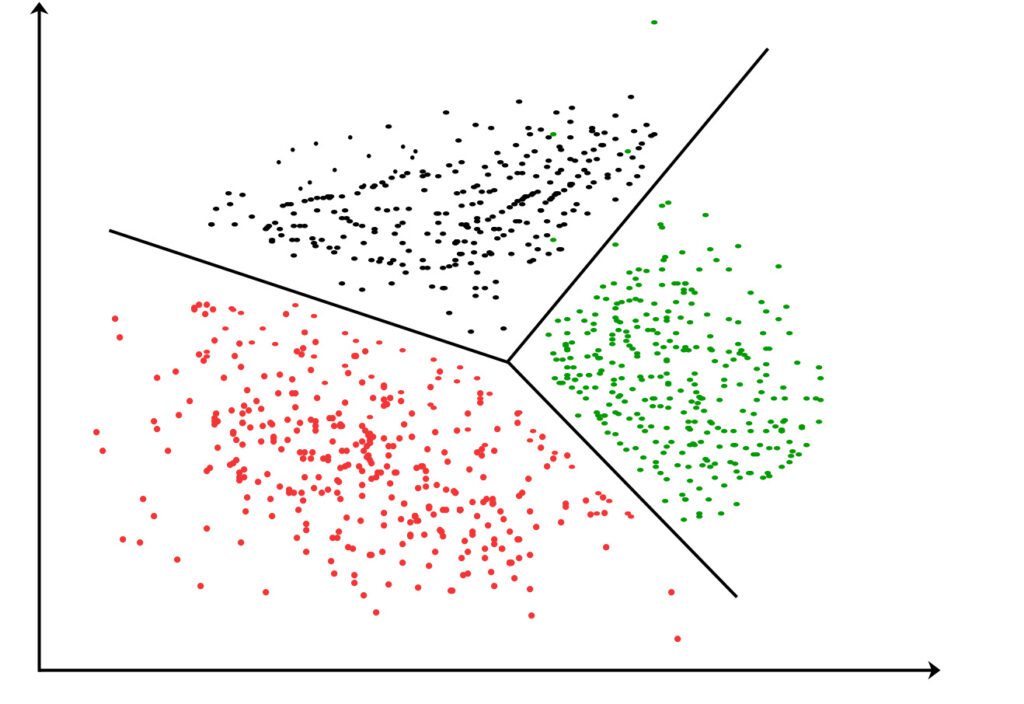
If you think about it from first principles, it makes a ton of sense to build out comprehensive keyword clusters. Not only does this build your topical expertise and help Google look at you as an expert in the topic, but it provides more value to your readers as well.
So whether or not you’re writing SEO content and hoping to rank for search queries, it helps to build out a library of your expertise and become the go-to source for your topic (this is, in a nutshell, thought leadership).
This is an effective play for any content strategy.
The 7 Best Keyword Clustering Tools in 2024
- Surfer SEO
- Keywordinsights.ai
- Frase.io
- HubSpot
- Google Sheets and keyword grouping add-ons
- Keyclusters
- AnswerThePublic
1. Surfer SEO
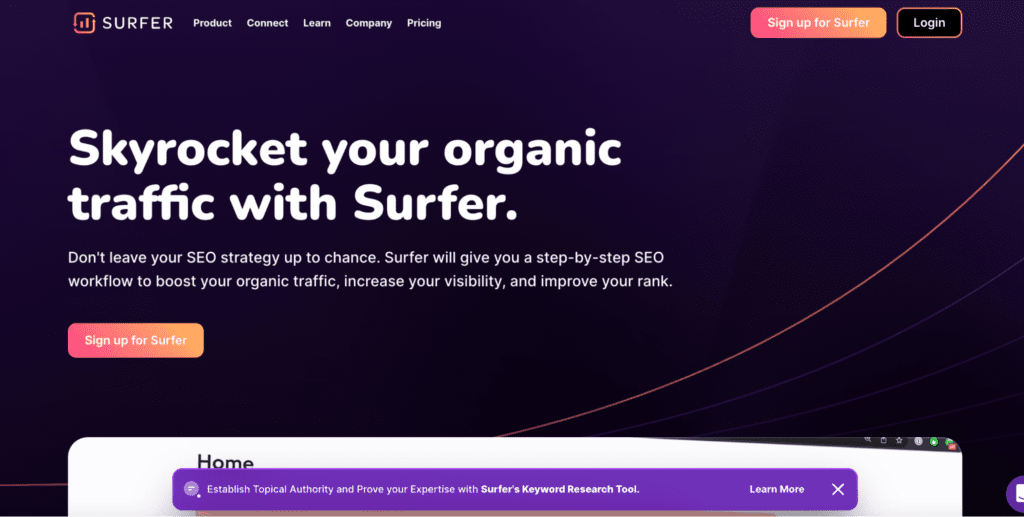
Surfer SEO is an amazing content optimization platform that is quickly building a formidable feature set.
First, their keyword clustering feature is great for uncovering the most common phrases and topics related to your keyword. Surfer’s Natural Language Processing (NLP) technology identifies trending subtopics, questions and ideas.
Surfer also analyzes the top ranking pages for each of the keywords in its cluster to give you an in-depth understanding of how Google sees the topic. This helps you match the search intent of the primary keyword, figure out the number of keywords you need to include, and get a group of keywords to guide the content creation process.
I don’t rely on Surfer a ton for keyword data at the start of the research process, but I use it all the time to optimize singular articles as well as to get related terms. Great tool for building topical authority.
2. Keywordinsights.ai
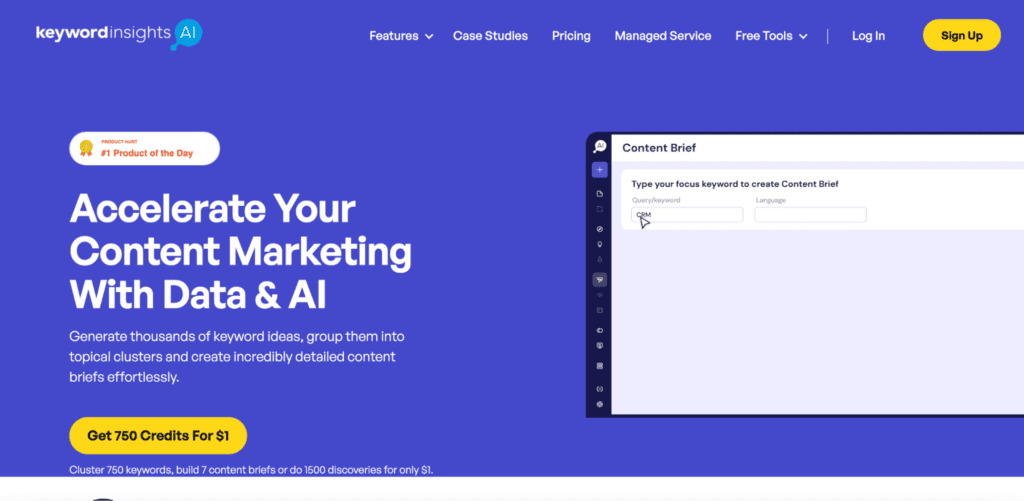
Keyword Insights is a new-ish tool I discovered and I’m obsessed with it. To be honest, I’m jealous I didn’t build it myself.
They have several features, including keyword discovery, keyword clustering, search intent, and content briefs.
Their keyword clustering feature is my favorite and pretty much does all the work for you.
You just enter your seed keywords, and it’ll generate long-tail variations with related topics, intent levels and search volumes. You can filter by key dimensions like CPC, search volume, and keyword difficulty.
3. Frase.io
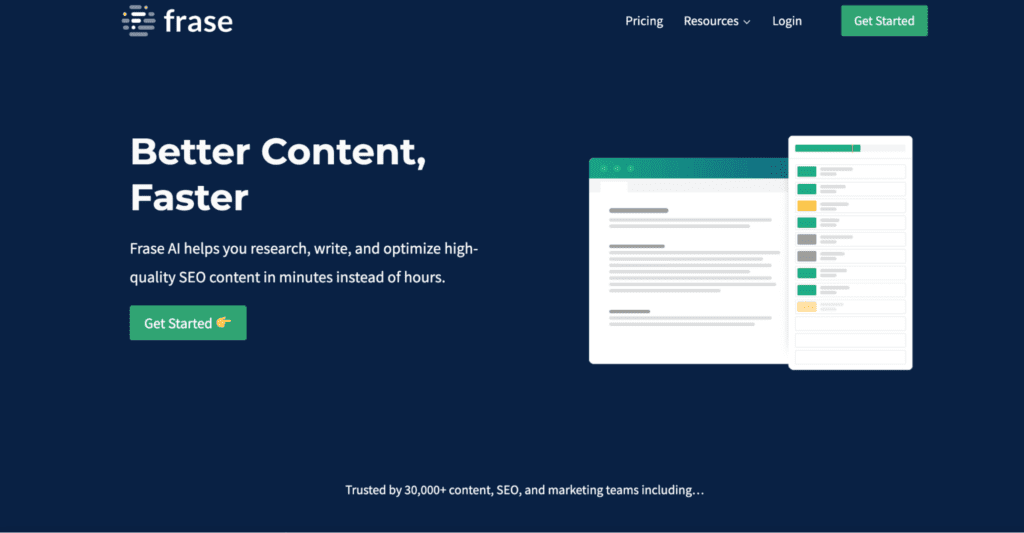
Frase is one of my favorite SEO tools. It’s got tons of features, from AI content writing to content brief generation and content optimization and scoring.
As part of their content research and briefs feature, they also have a keyword clustering tool. This is designed to give you an easy way to group related keywords and help you understand the context of each topic.
This ensures you not only build a comprehensive singular blog post including all related and long tail keyword, but you also have sufficient data to build a comprehensive cluster based on all keyword in that topic area.
4. HubSpot
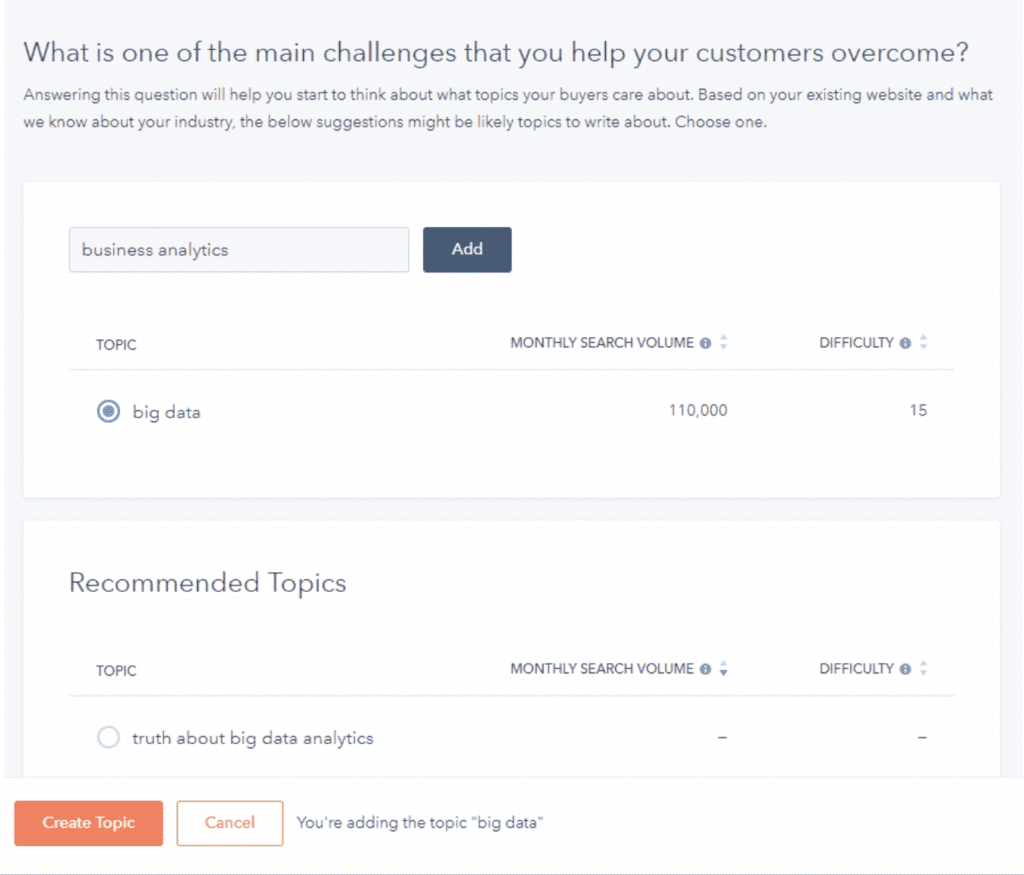
HubSpot may not have invented keyword clustering, but they did popularize the pillar and cluster model, which is probably the most popular and widely used model.
As part of their SEO and marketing tools, they have a clustering feature that lets you quickly group and categorize your keywords based on topics.
This will help you discover latent semantic indexing (LSI) terms, related phrases, and even uncover opportunities for content optimization and internal linking.
HubSpot, of course, has tons of other content marketing tools to help you drive organic traffic.
5. Google Sheets and keyword grouping add-ons
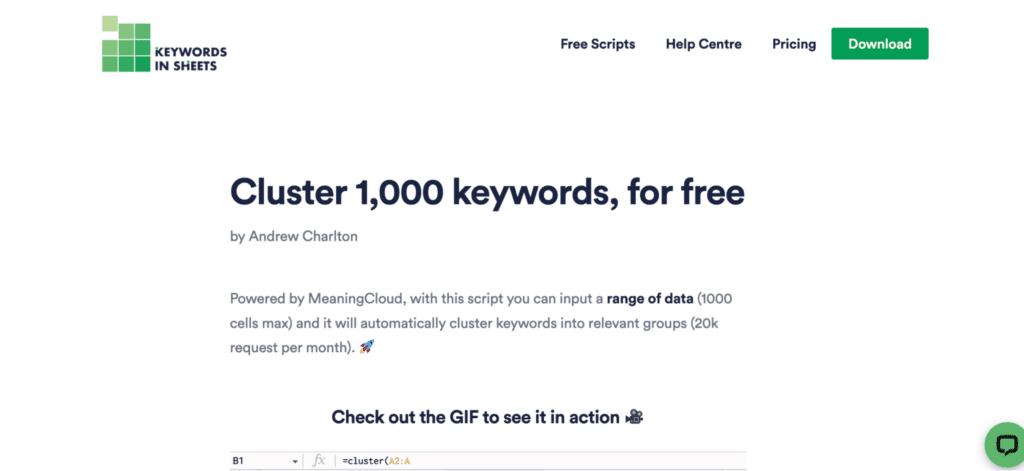
Say you’re already an avid user of Ahrefs, SE Ranking, Google Search Console, or Semrush for keyword research and don’t want to buy a whole new platform for topic clusters. What to do?
One way to cluster keywords is to use Google Sheets and a keyword grouping add-on such as Keywords in Sheets or Text Clustering in Sheets.
Both of these add-ons work in a similar fashion: you enter your seed keywords into a sheet, and the add-on will group them together based on similarity.
This can be a quick and easy way to get started with keyword clustering, and it’s especially useful if you already have a list of keywords that you’re working with. Just export your keywords to a CSV, open up with Google Sheets, and cluster using one of these add-ons.
The big benefit here is that pricing is essentially free, but you will have to do more time-consuming work than if you used a dedicated keyword grouper.
6. Keyclusters
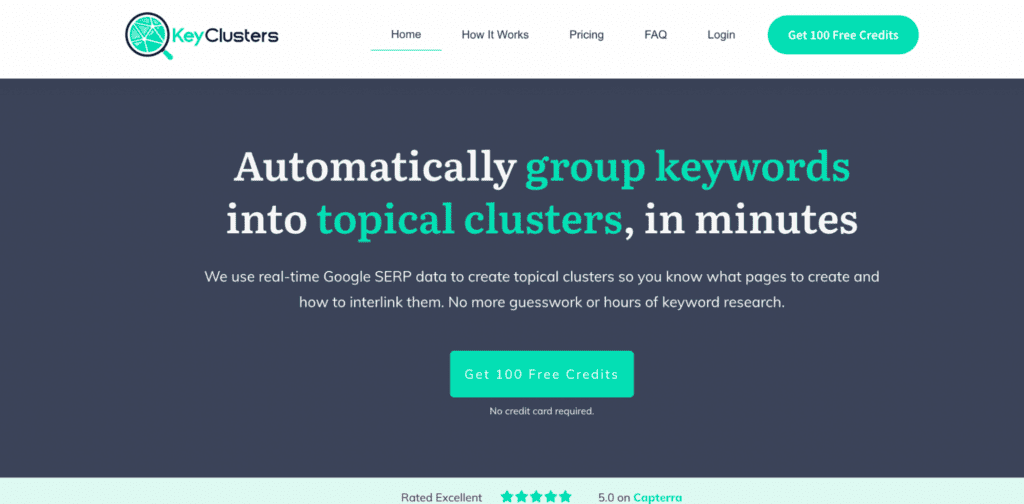
Keyclusters is a keyword clustering and research tool that allows you to quickly cluster long lists of keywords into related groups.
It uses a unique algorithm to analyze the semantic relationships between words, making it one of the more powerful tools available for keyword clustering.
This is also a dedicated keyword grouper that doesn’t have native keyword research functionality. However, you can just upload your CSV file to the tool and get started.
I like this one for its internal linking recommendations.
7. Answer The Public

Answer The Public is another tool that’s designed for keyword research, and it also offers a keyword clustering feature.
To use it, simply enter a seed keyword into the search bar.
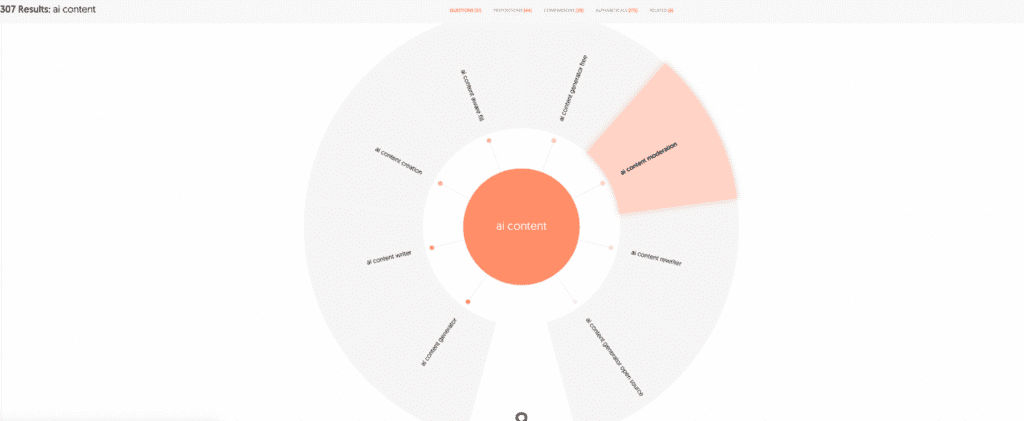
Answer The Public will then generate a list of questions that are related to your seed keyword, which can be helpful for generating ideas for blog posts or FAQ pages.
The whole output of Answer The Public is like one big topic cluster. It’s then up to you to organize and prioritize it, but this is one of the best keyword research tools I’ve used to generate a massive amount of related search terms.
But you’ll have to prune it and figure out which keywords are similar so you don’t stumble into keyword cannibalization and wasted efforts.
Conclusion
There are several different options available for keyword clustering.
If you’re just getting started with keyword clustering, then Google Sheets and one of the available add-ons (such as Keywords in Sheets or Text Clustering in Sheets) may be the way to go.
However, if you’re looking for more advanced features, then Keywordinsights.ai, Frase, or Surfer may be better suited to your needs.
Whichever option you choose, make sure to experiment with different approaches so that you can find the one that works best for you and your business.




